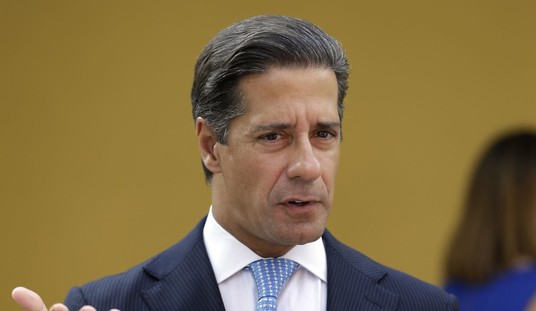Just after the disappointing end to a potentially game-changing meltdown on wokeness among Democrats, Hollywood manages to avoid one of its own. In an interview with As If magazine, A-lister Scarlett Johansson wondered aloud about the impact political correctness has on art. Why can’t she play any role she wants, Johansson asked her interviewer, without having to worry about ethnicity, gender, or … phylum?
In an interview with As If magazine, the actress made the bold and — particularly in left-leaning Hollywood — unpopular statement that she feels political correctness is antithetical to art.
“You know, as an actor I should be allowed to play any person, or any tree, or any animal because that is my job and the requirements of my job,” Johansson said. “I feel like it’s a trend in my business and it needs to happen for various social reasons, yet there are times it does get uncomfortable when it affects the art because I feel art should be free of restrictions.”
“I think society would be more connected if we just allowed others to have their own feelings and not expect everyone to feel the way we do,” she added.
I think that I shall never see
A tree as lovely as Scar-Jo’s would be.
As the Washington Post reminds its readers, these comments didn’t come in a hypothetical vacuum. Johansson took a lot of public criticism for cultural appropriation by appearing as the protagonist Motoko in Ghost in the Shell, a role that was Asian in the original material but renamed “Major” in the film. She also backed out of another project, Rub and Tug, a biopic about a transgender figure at the center of a prostitution ring in the 1970s, after criticism from transgender activists a year ago. At first, she scoffed at the criticism and noted other non-trans actors who portrayed such characters on film and television. After a few days of intense criticism, Johansson folded, claiming that she’d “learned a lot from the community since making my first statement on casting.”
Given that history, it seems pretty clear that Johansson’s still chafing at the political correctness of her arguably forced “education.” That certainly was the impression from the activists pushing for gender and ethnic authenticity in casting:
Am repinning this to my profile because ScarJo has learned nothing. Am definitely NOT watching ‘Black Widow’ or any future project of hers. https://t.co/bKLi9fsiuX
— Nancy Wang Yuen (@nancywyuen) July 13, 2019
Er … was that Johansson copying another actress, or both costumed to match the comic book character? Regardless, Wang Yuen was hardly alone in the instant reaction to Johansson’s lament. The Hollywood icon may have learned more than she’s credited in this case. She quickly disassociated herself from the implications of her response in the interview and claimed it had been “edited for click bait and is widely taken out of context.”
“An interview that was recently published has been edited for click bait and is widely taken out of context,” Johansson said in a statement over the weekend to several media outlets, referring to an article published in As If magazine. “The question I was answering in my conversation with the contemporary artist, David Salle, was about the confrontation between political correctness and art.” …
In the statement she released Saturday, the actress said “in an ideal world, any actor should be able to play anybody and Art, in all forms, should be immune to political correctness.”
“I recognize that in reality, there is a widespread discrepancy amongst my industry that favors Caucasian, cisgender actors and that not every actor has been given the same opportunities that I have been privileged to,” she added.
Just how out-of-context was the editing, anyway? The As If interview is not on line, but the statement itself seems pretty clear. Perhaps she raised it as a hypothetical and included a paean to the benefits of “authenticity” as a counterpoint. At the very least, Johansson had to know that even raising the question would result in taking flak.
Clearly this was an unpopular position, but was it wrong? Context matters on both sides of this argument. Hollywood has a long history of casting decisions that, let’s say, resulted in pale imitations of ethnic characters. Some of it was so obnoxious as to be revolting in retrospect, such as Mickey Rooney’s portrayal of a Japanese landlord in Breakfast at Tiffany’s, and there are long lists of films where native American roles went to white actors. There has been a larger effort to cast “authentic” actors in recent decades, but the history can’t be denied, and it’s easy to see why previously marginalized communities resent crossover casting to this day.
On the other hand, acting is largely the business and art of make-believe. We don’t expect to see real cops playing detectives on screen (although the late Dennis Farina was a terrific exception), and we don’t expect to cast trees as trees in roles requiring spoken lines, I guess. Art, as Johansson argued before repudiating herself, is supposed to be without limits and about taking risks. When those get imposed, art suffers, at least to some extent. For instance, the Rub and Tug project was to be funded at least in part by Johansson’s production company. Activists succeeded in forcing her off the project, but as a result the story of transgender kingpin Dante Gill has apparently died. Was it better not to have the story told at all rather than have it told by a “cisgender” A-lister who wanted to put her own money behind it?








Join the conversation as a VIP Member